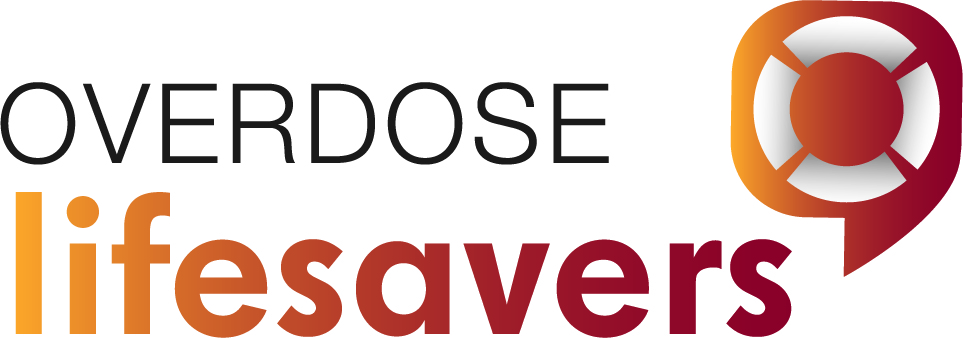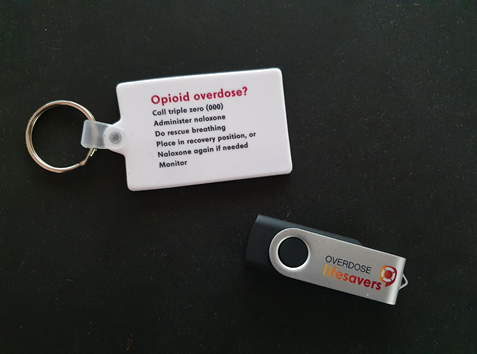
Take-home naloxone is available in Australia both on prescription and over the counter, yet distribution to people at risk of overdose or connected with those at risk is weak. Programs providing take-home naloxone to opioid consumers exist in some Australian cities, but uptake remains inconsistent. Funded by the Australian Research Council (2017-2020) this qualitative project collected the stories of people who consume opioids, prescribers and pharmacists to better understand the issues surrounding take-home naloxone. It then presented these (anonymised) stories in textual, audio and re-enacted video form on a publicly accessible website. Entitled Overdoselifesavers.org, this website was launched in 2017, introduced by Craig Foster, Australian human rights advocate and former Socceroo.
The aim of the study and the website was to inform those affected by overdose, professionals and the wider Australian community about take-home naloxone, to improve understanding of the issues relating to take-home naloxone, its distribution and use, and in doing so save lives. What is an opioid overdose? How do people manage and respond to them? What is take-home naloxone? What is it like to respond to overdose with and without naloxone? In addressing these questions, Overdoselifesavers.org aims to fill in the many gaps in public discussion of overdose, to counter stigmatising misconceptions, and to promote understanding and more effective community responses.
The project investigator team comprised:
- Professor Suzanne Fraser (ARCSHS, La Trobe University)
- Dr Robyn Dwyer (CAPR, La Trobe University)
- Professor Paul Dietze (Burnet Institute)
- Professor Joanne Neale (King’s College, London)
- Professor John Strang (King’s College, London)
Research staff
- Dr Adrian Farrugia (ARCSHS, La Trobe University)
- Dr Renae Fomiatti (ARCSHS, La Trobe University)
PhD student
- Ms Nyssa Ferguson (ARCSHS, La Trobe University)
Overdoselifesavers.org resources
Alongside Overdoselifesavers.org, this project produced keyrings with backing cards summarising the steps for responding to opioid overdose, and USB drives containing the final report and recommendations for future overdose policy and practice.


These resources are available at no cost.
To place an order please contact Dr Adrian Farrugia:
Publications
Fraser, S., Moore, D., Farrugia, A. & Fomiatti, R. (In press). ‘Passion, reason and the politics of intoxication: Ontopolitically oriented approaches to alcohol and other drug intoxication’ in G. Hunt, T Antin and V. Frank (Eds.), Handbook on intoxicants and intoxication, Routledge: London and New York.
Farrugia, A., Treloar, C. & Fraser, S. (2021). Overdoselifesavers.org: A mixed-methods evaluation of a public information website on experiences of overdose and using take-home naloxone to save lives. Drugs: Education, Prevention and Policy.
Neale, J., Farrugia, A., Campbell, A., Dietze, P., Dwyer, R., Fomiatti, R., Jones, J., Comer, S., Fraser, S. & Strang, J. Understanding preferences for type of take-home naloxone device: International qualitative analysis of the views of people who use opioids. Drugs: Education, Prevention and Policy.
Fomiatti, R., Farrugia, A., Dwyer, R., Fraser, S., Neale, J. & Strang, J. (2020). Addiction stigma and the production of impediments to take-home naloxone uptake. Health: An Interdisciplinary Journal for the Social Study of Health, Illness and Medicine.
Farrugia, A., Neale, J., Dwyer, R., Fomiatti, R., Fraser, S., Strang, J. & Dietze, P. (2020). Conflict and communication: Managing the multiple affordances of take-home naloxone administration events in Australia. Addiction Research & Theory, 28 (1), 29-37.
Farrugia, A. (2019). Commentary on Elliot et al. (2019): How stigma shapes overdose revival and possible avenues to disrupt it. Addiction, 114 (8), 1387-1388.
Farrugia, A., Fraser, S., Dwyer, R., Fomiatti, R., Neale, J., Dietze, P. & Strang, J. (2019). Take-home naloxone and the politics of care. Sociology of Health and Illness, 41 (2), 427-443.
Fraser, S., Farrugia, A. & Dwyer, R. (2018). Grievable lives? Death by opioid overdose in Australian newspaper coverage. International Journal of Drug Policy, 59, 28-35.
Farrugia, A., Fraser, S. & Dwyer, R. (2017). Assembling the social and political dimensions of take-home naloxone. Contemporary Drug Problems, 44 (3), 163-175.
The project also benefitted from the expertise of an advisory panel:
- Ms Jane Dicka, Harm Reduction Victoria
- Ms Elizabeth Carrigan, Australian Pain Management Association
- Mr Tom Lyons, Victorian Department of Health and Human Services
- Ms Angela Matheson, New South Wales Ministry of Health
- Mr Angelo Pricolo, Pharmacy Guild of Australia
- Dr Marianna Jauncey, Medically Supervised Injecting Centre
- Mr Trevor King, Uniting Care ReGen
- Professor Adrian Dunlop, Hunter New England Area Health
You must be logged in to post a comment.